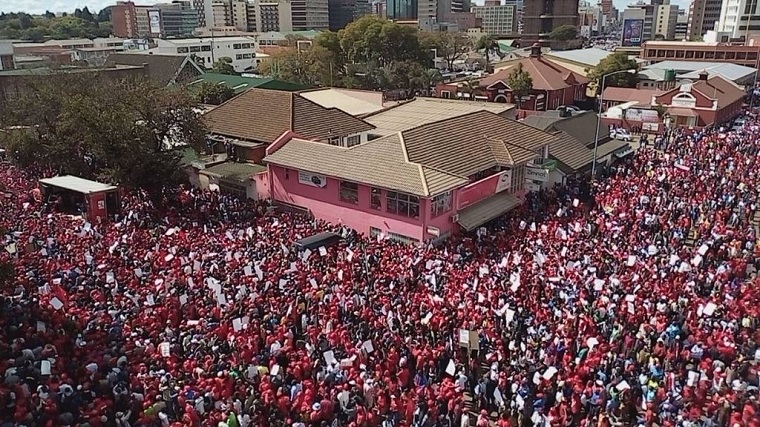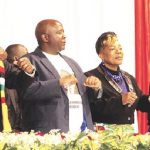Voters roll irregularities and lack of transparency on the ballot paper printing have particularly riled the MDC and its dispute with the Zimbabwe Electoral Commission (ZEC) over issue threatens to mar the election’s credibility.
The MDC wants an agreement between ZEC and political parties on the printing, storage and distribution of ballot papers. It held a protest march on Wednesday and plans more widespread unrest if such an agreement is not forthcoming.
So far the negatives are far outweighing the positives and if the status quo is retained, the election will be disputed and largely condemned by international observers. Cue economic Armageddon.
The European Union, which has so far deployed 44 observers around Zimbabwe, with more to come, has said it is in favour of allowing political parties greater access to the printing of ballot papers to enhance ‘transparency and credibility.’
ZEC has said there is no law which compels it to accede to the opposition’s demands. How about common sense?
Given that the voting process itself as well as counting, tallying and announcement is conducted in tandem, it leaves less room for political parties to dispute the outcome or stop a smooth power transfer. What are the chances of achieving this outcome?
Not so good in the current situation. Zimbabwe has held disputed elections since the turn of the millennium — with Mugabe’s ZANU-PF accused of using violence and cheating to cling to power — and needs a break from this unsavoury past to ensure public credibility and confidence.
Zimbabwe has been under ZANU-PF rule since independence in 1980 and has yet to experience a democratic transfer of power. In fact, one can argue that the situation in the country mirrors that in ZANU-PF itself, a party which has yet to witness a democratic transfer of power since its founding.
Most of the party’s current leaders have been part of Mugabe’s machinery, which the opposition and the West have in the past accused of suppressing dissent and cheating to stay in power, particularly in polls since 2000.
They have no record of practising democracy and came to power via a (rather popular) military coup which catapulted many army stalwarts into civilian government structures, including the vice presidency. But it also means that it is not unreasonable to assume that they could refuse to cede power in the event that the MDC emerges victorious.
If the opposition disputes the election which is widely approved by international observers, instability may only be for a temporary period. However, if the opposition position is supported by international observers, a prolonged economic downturn will be the result.
The army has said that it will support the winner of the elections while the ruling party has made similar comments, although some of its members have, a different stages, said otherwise.
Recent news reports suggest that ZANU-PF has somehow obtained voters information supplied to ZEC during the registration exercise and is using it for targeted campaigning.
ZEC is clearly low on credibility. What will happen? All bets are off.
By Respect Gwenzi and Alfonce Mbizwo for The Source
(298 VIEWS)


